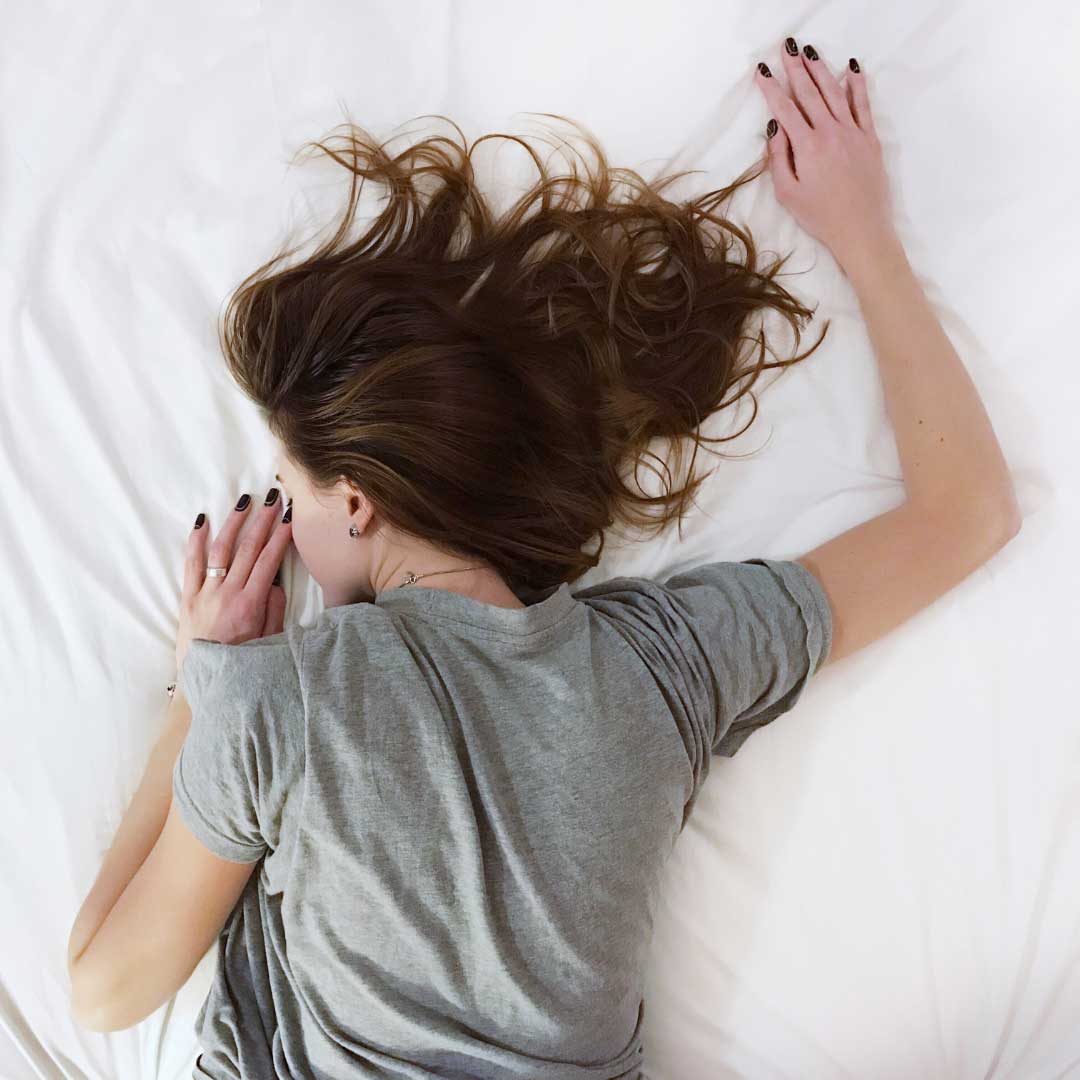
Sleep impacts every part of our health. That’s why we feel our best when we’re well-rested, and why we may suffer from mood swings, poor balance, lack of focus, and more when we’re not.
Prioritizing good, restorative sleep is a crucial component of our overall health and wellness. In a previous post, we discussed the benefits of sleep, signs you are or aren’t getting enough, and some ideas about how to improve your sleep quality.
In this post, we’re diving deeper into one improvement opportunity: sleep hygiene.
What is Sleep Hygiene?
Sleep hygiene is much more than a bedtime routine. It’s creating the habits, routines, and environments all day that contribute to falling asleep, sleeping soundly through the night, and waking up well-rested.
These sleep-supporting habits make healthy behaviors feel natural and “automatic”, and result in a ongoing process of positive reinforcement.
Am I Sabotaging My Sleep?
But we all know bad habits can be hard to break, even when they have negative consequences like causing us to struggle to fall asleep, wake up during the night, be sleepy during the day, and lowering our sleep quality.
Here are common things we do that keep us from getting the blissful night’s sleep we deserve:
- Taking long daytime naps.
- Eating a big dinner.
- Going to bed hungry.
- Using your phone before bed.
- Getting caught up in a new TV series before bed.
- Working in bed.
- Letting stress get the best of us (hello, Sunday Scaries & sleep procrastination).
- Lying in bed when you can’t fall asleep.
- Drinking caffeine too close to bedtime.
- And, of course, alcohol.
Sound familiar? We see you, and we can help.
How Do I Improve My Sleep Hygiene?
Good sleep hygiene is all about setting yourself up for success to sleep well every night. It includes the habits and environment that can pave the way for better quality of sleep and an elevated quality of life.
Set Your Sleep Schedule
Being consistent about the times you go to bed and get up in the morning – this helps your mind & body anticipate when it’s time to fall asleep and wake up, and starts making it more “automatic”.
- Have a fixed wake up time. Even on the weekends (sorry!) at least for a little while until you’re sleeping better. The consistency helps your body get into a better sleep rhythm.
- Ditto on the bed time. The same time every night will help your body to “know” when it’s time to sleep, and make the process of falling asleep much easier. You may need to ease up on Netflix or your social agenda for a while, but it will be worth it!
- Don’t nap too much. For those who can power nap: I salute you. For the rest of us, long naps can disrupt out body’s sleep/wake cycles and make nighttime a struggle.
- Make gradual adjustments. Drastic changes are hard for your body to adapt to (think: jet lag) so try making 15-minute shifts every 1-2 days until you find your optimal sleep schedule.
Follow a Nightly Routine
Your body loves routine, and a consistent pre-sleep routine helps signal to your body and mind that it’s time to sleep, making it more likely that you’ll be able to successfully fall and stay asleep.
- Schedule a 30 minute wind down. Give your mind & body time to mentally prepare for sleep. This is a good time to try out some new calming techniques, such as meditation, breathing exercises, light stretching, or calming music.
- Unplug. 30-60 minutes before bed, turn off all brain-stimulating screens that want to keep you awake. Really.
- No water 2 hours before bed. If you find your bladder is waking you up at night, stop drinking a couple of hours before bed so you can minimize that distraction.
- Have a small, high protein snack before bed. A few almonds is enough to make sure a grumbling stomach won’t keep or wake you up.
- If you’re tossing & turning, get up. Being in bed but awake is not good for your sleep success. If you can’t sleep after 20 minutes, get up and do some light stretching, easy reading, meditation, or something else calming in low light until your mind & body relaxes.
- Keep your routine consistent. Especially while you get it established, try to stay as consistent as possible to solidify those healthy habits.
Make Good Daytime Decisions
Prioritize things you can do during the day that support your circadian rhythm and can help you get better sleep at night.
- Get some sun. Sunlight is a key element to guiding our circadiam rhythm.
- Move your body. Exercise not only boosts your daytime mood and energy, but also helps you sleep better at night.
- Just say no. Tobacco and alcohol can really disrupt your sleep – tobacco through its stimulating qualities (not to mention the long-term health risks), and alcohol, while it can make falling asleep seem easier, greatly disrupts sleep as its metabolized overnight.
- No caffeine after noon. Try experimenting with cutting out caffeine in the afternoon and see how it improves your night.
- Keep the bed for sleep. Working or doing other activities in bed (except sex – we’ll allow it) links those activities with your bed in your mind, and your bed should be strongly linked with sleep.
- Watch what you eat. A late or heavy dinner can stress your digestive system when you really need your body to relax.
- Manage your stress. Keeping your stress levels in check during the day helps you transition into a more peaceful night.
- Be prepared. If you can’t stop thinking about tomorrow, prepare for it: get meals ready, write a to-do list, set out your clothes – anything that can get it out of your mind so you can stop worrying and start relaxing.
Optimize Your Environment
We love to climb into a comfy, cozy bed. Think about what makes your perfect, tranquil environment and start making your bedroom a place that makes you feel calm and inviting.
- Get a comfy. Comfort is key. Make sure your bedding – including your mattress, pillows, and sheets – give you the support need to sleep.
- Turn down the senses. Light & noise can keep us from falling and staying asleep. Try black out curtains or an eye mask and some ear plugs to decrease sensory input.
- Stay cool. We tend to sleep better in cooler temperatures. That could mean adjusting our blankets, pajamas, or thermostat.
- Try something new. A calming essential oil diffuser, pillow spray, calming music, or a weighted blanket – experiment with other paths to calm.
- Keep your phone out of reach. So it doesn’t tempt you if you’re having trouble falling asleep or wake up in the middle of the night.
Of course, we know that the best approach to creating healthy change through your habits is to take small steps that, over time, add up to make a big difference. Start with a few of the above steps, and add one or two in every week. Before you know it, you’ll have established the habits that help you sleep soundly and wake up feeling refreshed.
SHOP OUR MOST POPULAR DAYTIME STRESS & NIGHTTIME SLEEP SOLUTIONS



